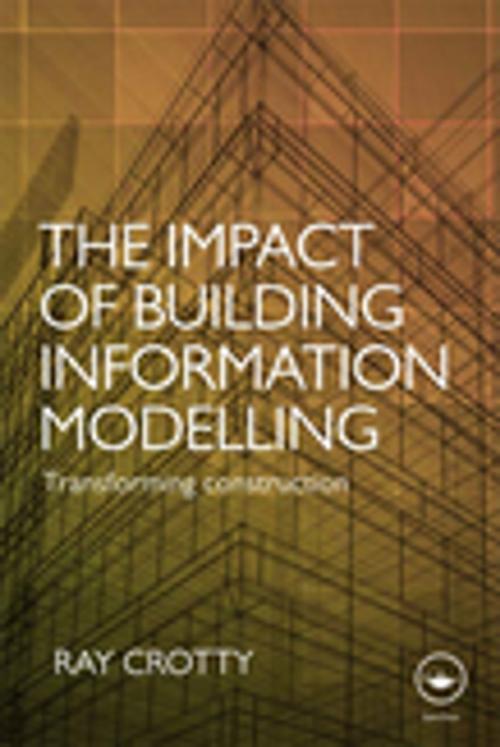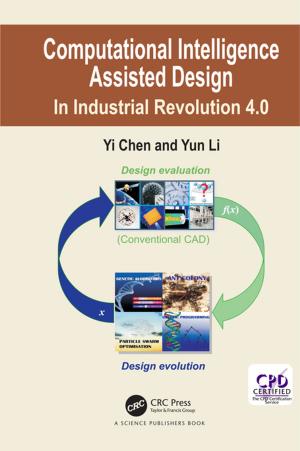The Impact of Building Information Modelling
Transforming Construction
Nonfiction, Science & Nature, Technology, Construction & Construction Trades| Author: | Ray Crotty | ISBN: | 9781136860560 |
| Publisher: | CRC Press | Publication: | March 1, 2013 |
| Imprint: | Routledge | Language: | English |
| Author: | Ray Crotty |
| ISBN: | 9781136860560 |
| Publisher: | CRC Press |
| Publication: | March 1, 2013 |
| Imprint: | Routledge |
| Language: | English |
Construction projects involve a complex set of relationships, between parties with different professional backgrounds trying to achieve a very complex goal. Under these difficult circumstances, the quality of information on which projects are based should be of the highest possible standard. The line-based, two dimensional drawings on which conventional construction is based render this all but impossible. This is the source of some major shortcomings in the construction industry, and this book focuses on the two most fundamental of these: the failure to deliver projects predictably: to the required quality, on time and within budget; and the failure of most firms in the industry to make a survivable level of profit. By transforming the quality of information used in building, BIM aims to transform construction completely.
After describing and explaining these problems, the way in which BIM promises to provide solutions is examined in detail. A discussion of the theory and practice of BIM is also provided, followed by a review of various recent surveys of BIM usage in the US, UK and selected European economies. The way in which other industries, including retail and manufacturing, have been transformed by information are explored and compared with current developments in the deployment of BIM in construction. Five case studies from the UK show how BIM is being implemented, and the effects it is having on architects and contractors.
This book is perfect for any construction professional interested in improving the efficiency of their business, as well as undergraduate and postgraduate students wishing to understand the importance of BIM.
Construction projects involve a complex set of relationships, between parties with different professional backgrounds trying to achieve a very complex goal. Under these difficult circumstances, the quality of information on which projects are based should be of the highest possible standard. The line-based, two dimensional drawings on which conventional construction is based render this all but impossible. This is the source of some major shortcomings in the construction industry, and this book focuses on the two most fundamental of these: the failure to deliver projects predictably: to the required quality, on time and within budget; and the failure of most firms in the industry to make a survivable level of profit. By transforming the quality of information used in building, BIM aims to transform construction completely.
After describing and explaining these problems, the way in which BIM promises to provide solutions is examined in detail. A discussion of the theory and practice of BIM is also provided, followed by a review of various recent surveys of BIM usage in the US, UK and selected European economies. The way in which other industries, including retail and manufacturing, have been transformed by information are explored and compared with current developments in the deployment of BIM in construction. Five case studies from the UK show how BIM is being implemented, and the effects it is having on architects and contractors.
This book is perfect for any construction professional interested in improving the efficiency of their business, as well as undergraduate and postgraduate students wishing to understand the importance of BIM.















